Has your SASSA SRD R370 grant been declined? Don’t worry I’ll help you appeal! As someone who understands how important these SASSA grants are,
I’ll walk you through the exact appeal process that can overturn your rejection.
I know dealing with the SASSA system can feel challenging, but my step-by-step guide makes appealing simple and boosts your chances of approval. Let’s turn that decline into an approval together!
Note: The SASSA SRD grant amount increased from R350 to R370 in 2024.
How To SASSA Appeal for Declined SASSA SRD R370 Grant? (Quick Answer)
Follow the below easy steps to Appeal for SASSA SRD R370
- Visit Official Portal: srd.sassa.gov.za/appeals/appeal
- Enter Details: Input ID number and phone for OTP verification
- Select Month: Choose rejected grant period
- Submit Documents: Upload supporting bank statements and unemployment proof
- Wait 60-90 Days: SASSA reviews appeal and sends final decision
All SASSA appeals require valid ID and proof of eligibility.
Prepping for a Successful SASSA Grant Appeal
The appeal process gives you a chance to challenge the decision if your Social Relief of Distress (SRD) grant application gets rejected.
It’s really important to take action within 90 days of getting the rejection notice.
Get Ready to Appeal
- Have Your Info Ready: Make sure you have your ID number and the phone number you used when you first applied.
- Know Why You Were Denied: Understanding the specific reason your application was rejected can help you make a stronger appeal.
Some key things to check:
- Did you provide accurate personal details that match Home Affairs records?
- Are you currently receiving any other grant payments or student funding?
- Does your income from sources like UIF or employment disqualify you?
- Do you meet the age requirements between 18-60 years old?
- Did you submit all required documents and proof?
Identifying the core issue can allow you to directly address it and build a solid case for your appeal to be approved this time.
The appeal lets you clarify any misunderstandings or provide missing information. Preparing properly gives you the best shot at overturning the initial rejection.
How to Appeal If Your SASSA SRD R370 Grant Application Was Rejected?
If SASSA has denied your application for the crucial Social Relief of Distress (SRD) R370 grant, but you firmly believe this decision was made in error, there’s no need to lose hope. You have the right to appeal the rejection and present your case for reconsideration
1. Accessing the SRD Appeal Portal
Visit the official https://srd.sassa.gov.za/appeals/appeal to begin the appeal process for the R370 grant rejection.
2. Entering Your Identification Details
Enter your 13-digit ID number and registered mobile number. You’ll receive an OTP (One-Time PIN) to verify your identity.
3. Specifying the Appeal Period
Select the specific month for which your R370 grant was denied. Submit separate appeals for multiple rejected periods.
4. Stating Your Appeal Grounds
Clearly explain why you believe the R370 grant rejection was unjustified, based on your financial circumstances.
5. Submitting Supporting Documentation
Upload SASSA documents like bank statements and proof of unemployment to support your eligibility for the grant.
6. Reviewing and Confirming Details
Carefully review all information and documentation before submission to avoid errors that could delay the process.
7. Submitting the Appeal
Formally submit your R370 grant appeal after confirming the accuracy of all details. You’ll receive a confirmation.
8. Awaiting the Appeal Outcome
SASSA will review your case, which may take 60-90 days. You’ll be notified of the final decision.
9. Seeking Assistance if Required
Contact SASSA support if you face any difficulties with the online appeal process.
10. Understanding the Appeal Decision
If unsuccessful, review the reasons provided to determine if further action is warranted.
How To SASSA Status Check Appeal Status for R370 Grant?
To check the status of your SASSA SRD grant appeal for the R370 amount, you’ll need to have your South African ID number handy. Follow these steps:
1. Visit the SASSA Appeals Website:
Go to the official SASSA Appeals website at srd.dsd.gov.za/appeals to access the appeal status check service.
2. Enter Your ID Number and Phone Number:
On the website, enter your 13-digit South African ID number and your registered mobile phone number.
3. Receive and Enter the OTP:
You’ll receive a One-Time Pin (OTP) on your phone. Enter the OTP code on the website to verify your identity.
4. Track Your Appeal:
Once you’ve completed the verification process, you can track the status of your SASSA SRD grant appeal.
Alternatively, you can contact the SASSA Call Centre at 0800 601 011 and provide your ID number to inquire about the status of your appeal. However, if you looking for checking the status of SASSA application you can check it at SASSA Status Check website.
What to Do if My SASSA Appeal is Declined for r370 Grant?
Getting the news that your appeal for the Social Relief of Distress (SRD) R370 grant has been denied can feel really disappointing. But there are steps you can take to understand the reason behind it and explore other possibilities. This guide will help walk you through what to do if you find yourself in this situation.
1. Understand Why It Was Denied
Review the Decision Letter:
The first thing is to understand the specific reason given for declining your appeal. The Independent Tribunal for Social Assistance Appeals (ITSAA) should provide clear grounds for the denial.
Ask for More Details:
If the reason is confusing, contact ITSAA or SASSA to request a more detailed explanation.
2. Double-Check Your Application
Verify Your Info:
Make sure all the personal details and information you included in your original application and appeal were completely accurate and nothing was missing. Sometimes a simple error or leaving something out can cause an appeal to be denied.
Review Eligibility Rules:
Look back at the eligibility requirements for the SRD grant. Confirm that you meet all of the criteria.
3. Seek Expert Advice
Talk to Legal Aid:
If you’re unsure about why your appeal was denied or if you qualify, get advice from legal aid services or community programs that help guide people through social grant processes.
4. Potential Legal Action
Request a Review:
If you strongly believe your appeal was wrongly denied and you definitely meet the eligibility rules, you may want to consider asking the High Court to review the decision. But this should only be done after very careful thought and preferably with a lawyer’s guidance.
5. Look Into Other Assistance
Check Other Programs:
If the SRD grant is no longer an option, research other government or community assistance programs that could potentially help your situation.
Nonprofit Aid:
Many nonprofit organizations and NGOs offer various forms of support to people struggling financially. This could include food aid, temporary shelter, or information on accessing other available resources.
6. Money Management
Create a Budget:
Use this as an opportunity to take a close look at your overall financial situation and budget carefully. Even without the grant, understanding how to best manage your money can help a lot.
Jobs & Skills:
Consider looking into job opportunities or skills training programs that could improve your chances of finding employment.
7. Stay Up-to-Date
Watch for Changes:
The policies and qualifying rules for social grants can change over time. Stay informed about any updates or new programs you may become eligible for in the future.
8. Don’t Neglect Mental Health
Reach Out for Support:
Dealing with significant money problems and stress can take a major toll. Don’t hesitate to seek emotional support from loved ones, mental health professionals, or support groups.
9. Be Prepared Moving Forward
Keep Documents Ready:
If your financial circumstances change down the road, you may qualify for the SRD grant or other assistance at that point. Keep all your documentation organized and updated to be ready to reapply when needed.
While having an appeal rejected can be really frustrating, it’s important to explore all your options and any potential sources of support. Understanding the choices available, getting advice, and staying informed can help guide you through this challenging situation and find alternative solutions for your financial needs.
Why SASSA SRD Appeals Get Declined? Top Reasons & Solutions
When you initially apply for the Social Relief of Distress (SRD) R370 grant and your application is rejected, you have the right to appeal that decision. However, the appeals themselves can also end up being denied as well. Being aware of the most common reasons for appeals being turned down can help give you a better understanding of the process and potentially avoid running into the same issues.
1. Identity Verification Problems
Mismatched Details:
If the personal information you provide does not perfectly match the official records at the Department of Home Affairs, your appeal is likely to be denied. This includes any inconsistencies with your name, ID number, or other identifying details.
What to Do:
Double-check that all your personal details are absolutely correct and up-to-date in the Home Affairs system.
2. Receiving Other Grants
Double-Dipping:
If official records show you are already receiving another type of social grant, your SRD appeal will almost certainly be denied. The SRD grant is specifically intended for those without any other government financial assistance.
What to Do:
Verify your current status and make sure you are not listed as actively receiving any other grant payments.
3. NSFAS Student Funding
Education Assistance:
If you are receiving funding from the National Student Financial Aid Scheme (NSFAS), you are considered to already have your financial needs supported, which disqualifies you from the SRD grant.
What to Do:
Confirm whether or not you have an active NSFAS funding status, as that would make you ineligible for SRD.
4. Unemployment Insurance
UIF Payments:
Getting Unemployment Insurance Fund (UIF) payments is seen as you having an income source, meaning your SRD appeal will be denied.
What to Do:
Double-check if you have any current or recent UIF payments, as receiving those disqualifies you from SRD grant eligibility.
5. Government Employment
Public Sector Income:
Being officially employed by the government and receiving a paycheck makes you ineligible for the SRD grant, since it is meant for those with no income at all.
What to Do:
Make certain your employment status is accurately reflected, as any government job would disqualify you from receiving the grant.
6. Age Requirements
Too Young or Old:
You must be between the ages of 18 and 60 to qualify. Anyone younger or older than that age range will have their appeal denied.
What to Do:
Verify that your age falls within the required 18-60 year old limits.
7. Incorrect Death Record
Recorded as Deceased:
If the Home Affairs database incorrectly has you listed as deceased, your SRD appeal will absolutely be denied.
What to Do:
Get this fixed immediately with Home Affairs if their records wrongly show you as having passed away.
8. Outside Income Detected
Over Income Limits:
If your bank records show deposits totaling over R624, it indicates you likely have another income source, making you ineligible for the grant.
What to Do:
Make sure your income and bank transactions do not exceed the maximum allowable limits to qualify.
9. Contact Issues
Wrong Contact Info:
If SASSA is unable to reach you because you provided incorrect or outdated contact details, it can derail your entire appeal process.
What to Do:
Always double-check that you have given your current and correct contact information.
10. Lack of Documentation
Missing Documents:
Not supplying all of the necessary documentation and evidence to support your appeal is a surefire way for it to be denied.
What to Do:
Make certain you have included all required documents like bank statements or proof of unemployment when submitting your appeal.
Understanding these common pitfalls can help you put together a much stronger, accurate, and successful appeal from the start. Or allow you to take corrective action if your initial appeal is denied. Always ensure your information is complete, updated and you meet all criteria. If any issues, contact the appropriate offices for clarification and assistance.
When Will I Know If My SASSA SRD Appeal Was Successful?
The Independent Tribunal for Social Assistance, which oversees the Sassa SRD appeal process, typically takes 60 to 90 days to provide feedback on your appeal. The outcome of your appeal will be communicated to you via SMS.
It’s important to note that processing times can vary depending on the volume of applications and appeals, as well as individual circumstances. SASSA recommends regularly checking the status of your application online for any updates.
Remember, you need to submit a separate appeal for each month your SASSA SRD grant application was rejected. If you’ve already submitted an appeal, there’s no need to submit another or contact the SASSA office directly.
How to Stay Positive After SASSA Appeal Rejection?
Having your appeal for the SASSA SRD R370 grant rejected can be a big disappointment, especially if you were counting on that money. It’s normal to feel sad, frustrated or worried about how you will cope financially. But it’s important to not lose hope and stay positive during this tough time.
1. Allow Yourself To Feel
Don’t bottle up your emotions. It’s okay to feel upset, angry or stressed when things don’t go your way. Talk to loved ones about how you’re feeling and let it all out. Crying can even make you feel a bit better.
2. Don’t Take It Personally
Remember that your appeal rejection is not a reflection on you as a person. There are set rules and requirements that have to be followed. Try not to take the decision too personally.
3. Focus On o Yourself
This is a challenging period, so be compassionate towards yourself. Don’t beat yourself up over the rejection. Treat yourself with the same kindness you would show a friend going through a hard time.
5. Find Low-Cost Ways To Boost Your Mood
Money troubles can really get you down. But there are free or low-cost ways to lift your spirits. Listen to upbeat music, go for a walk in nature, or pick up an old hobby you enjoy.
6. Celebrate Small Wins
It may not feel like it, but applying for the SRD grant and going through the appeals process are achievements in themselves. Pat yourself on the back for the effort you made. Celebrate any tiny progressyou make towards improving your circumstances.
7. Lean On Your Support System
Don’t go through this alone. Spend time with supportive family and friends who can encourage and motivate you. If you don’t have many people to turn to, there are support groups and counselors who can provide a listening ear.
8. Take Care Of Your Health
Money issues can take a toll on your physical and mental wellbeing. Make sure you eat nutritious meals, get enough sleep, exercise and do activities that relieve stress. A healthy body can better cope with challenges.
9. Find Meaning And Purpose
When you’re feeling down, it helps to remind yourself of what truly matters – the people you love, your principles, or a higher power. Refocus on your core values and reasons for persevering.
10. Don’t Lose Hope
Above all, don’t give up. This setback is only temporary. If your financial situation improves one day, you may qualify for assistance. An optimistic outlook and determination will help see you through to better days.
Dealing with rejection is never easy, but how you respond can make a big difference. With self-compassion, a positive mindset and the right coping strategies, you can get through this tough period.
Factors Affecting SASSA SRD Appeal Processing Times
The processing time for SASSA SRD grant appeals can be influenced by several factors, including:
Application and Appeal Volume:
During periods of high demand for the SRD grant, the Independent Tribunal may experience a surge in appeals, leading to longer processing times.
Individual Circumstances:
The complexity of your particular case and the supporting documentation provided can impact the time required to evaluate your appeal.
SASSA’s Verification Process:
SASSA must thoroughly review each appeal to ensure the integrity of the grant program, which can contribute to the overall processing duration.
Communication Delays:
Any issues with the delivery of SMS updates or other communication channels can also affect the timeline for receiving feedback on your appeal.
To stay informed and manage your expectations, it’s recommended to regularly check the status of your Sassa SRD grant appeal on the official SASSA website or by contacting the customer care helpline.
The chances of your appeal being successful depend on your individual circumstances and why your initial application was rejected. Provide clear explanations to justify why you qualify for the grant.
Regularly checking your appeal status is recommended, as SASSA does not automatically notify you of updates. Stay on top of the process to ensure your appeal is evaluated thoroughly and you receive your rightful R370 grant if approved.

I’m Anele Zulu, a South African social worker dedicated to serving my country’s most vulnerable. With my degree and field expertise, I empower underprivileged communities through compassionate support and tireless advocacy on this website. My goal is simplifying access to services so families can uplift themselves
Contents
- 1 How To SASSA Appeal for Declined SASSA SRD R370 Grant? (Quick Answer)
- 2 Prepping for a Successful SASSA Grant Appeal
- 3 How to Appeal If Your SASSA SRD R370 Grant Application Was Rejected?
- 3.1 1. Accessing the SRD Appeal Portal
- 3.2 2. Entering Your Identification Details
- 3.3 3. Specifying the Appeal Period
- 3.4 4. Stating Your Appeal Grounds
- 3.5 5. Submitting Supporting Documentation
- 3.6 6. Reviewing and Confirming Details
- 3.7 7. Submitting the Appeal
- 3.8 8. Awaiting the Appeal Outcome
- 3.9 9. Seeking Assistance if Required
- 3.10 10. Understanding the Appeal Decision
- 4 How To SASSA Status Check Appeal Status for R370 Grant?
- 5 What to Do if My SASSA Appeal is Declined for r370 Grant?
- 6 Why SASSA SRD Appeals Get Declined? Top Reasons & Solutions
- 7 When Will I Know If My SASSA SRD Appeal Was Successful?
- 8 How to Stay Positive After SASSA Appeal Rejection?
- 9 Factors Affecting SASSA SRD Appeal Processing Times

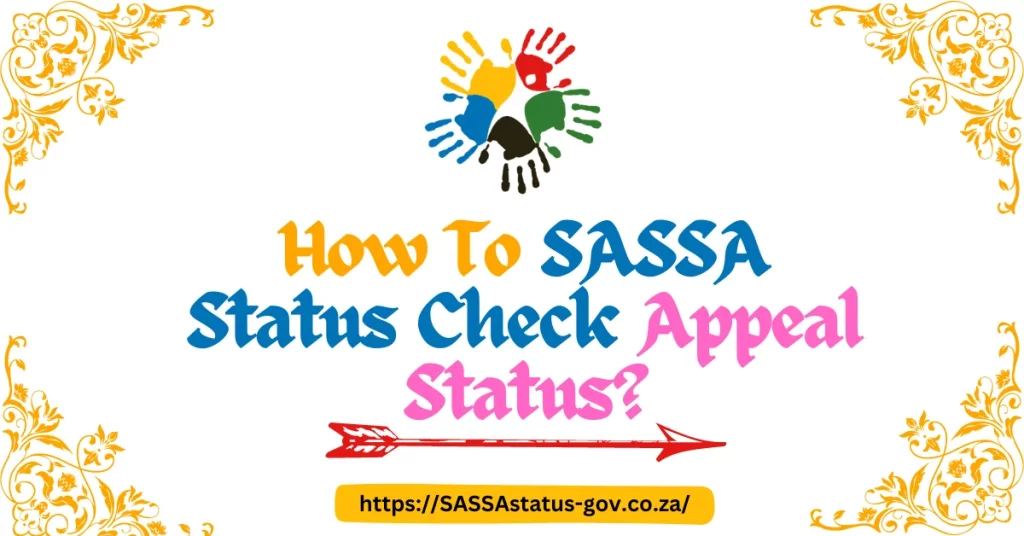
![SASSA Grants Types in South Africa [2024] - [Ultimate Guide] The Complete Guide to SASSA Grants Types in South Africa](https://sassastatus-gov.co.za/wp-content/uploads/2024/02/The-Complete-Guide-to-SASSA-Grants-Types-in-South-Africa.webp)
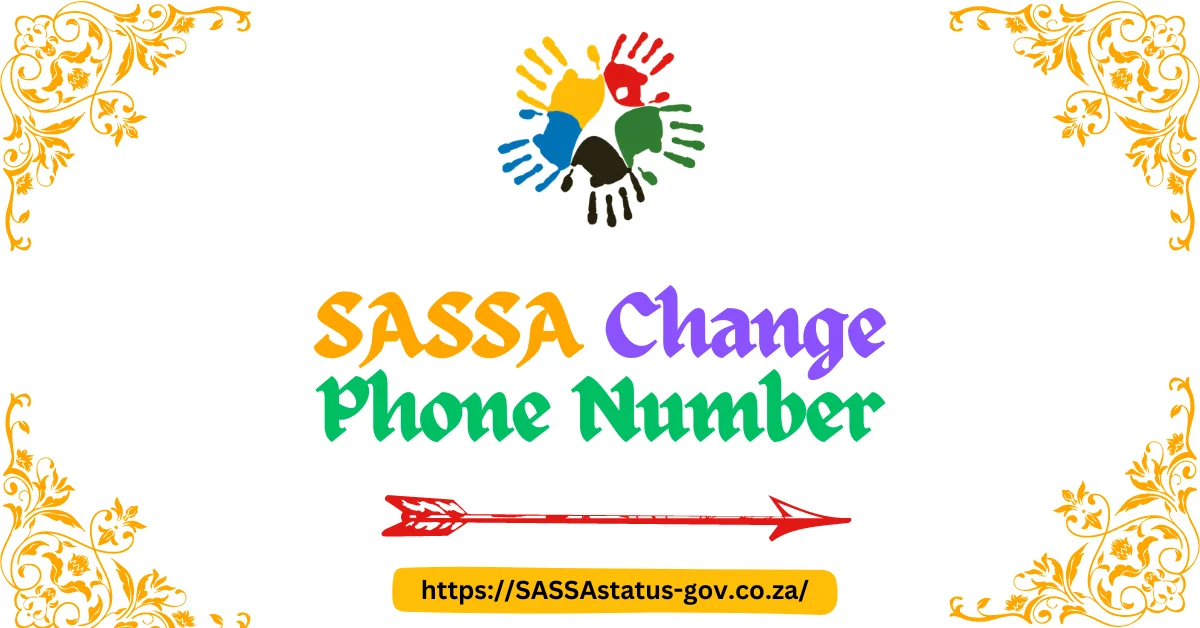
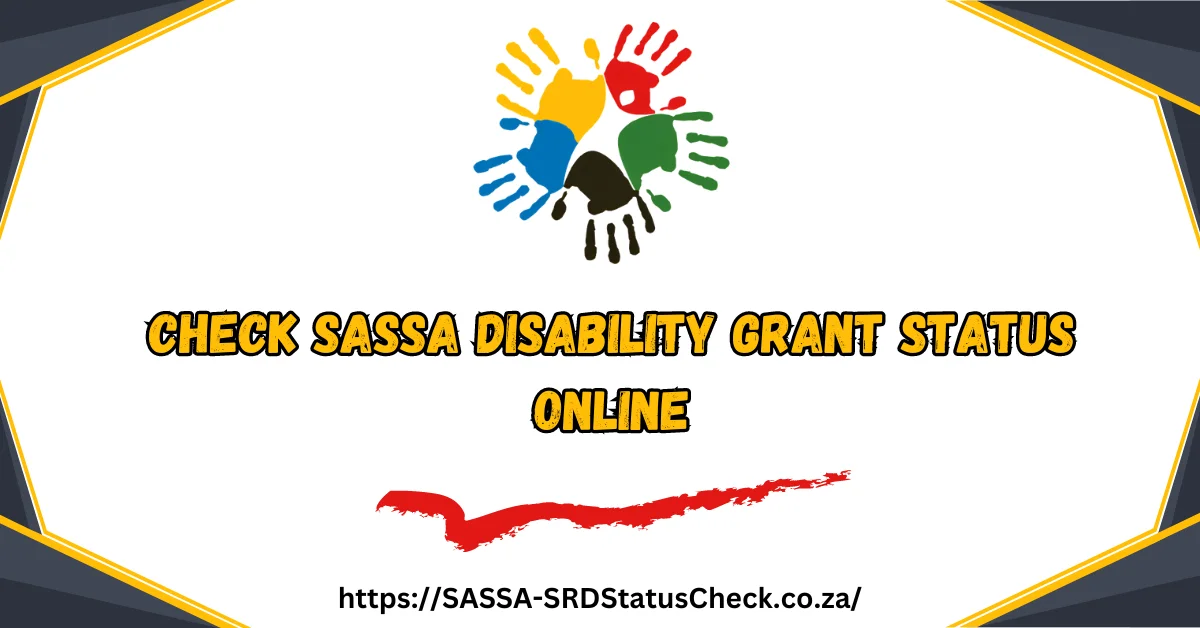
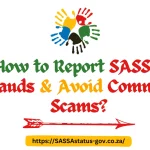
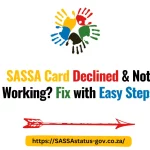
![SASSA Reapplication for r350 (Now R370) SRD Grant Online [2024] Reapply for SASSA R350 Grant After Rejection: Step-by-Step Online/In-Person Guide. Check Application Status, Reapplication Requirements.](https://sassastatus-gov.co.za/wp-content/uploads/2024/05/SASSA-Reapplication-for-r350-Now-R370-SRD-Grant-Online-150x150.webp)
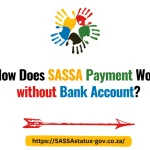
Hi am tsakani Lisbeth khosa am trying to get my sassa social grant bug nothing is only approve but no date I also lost my phone that I did use to apply before I want to put new cell phone number. My old number was 0739181016 . My new number is 0836110298 please😫🙏🙏💓 help long time happening. I hope you will help me I thank you.